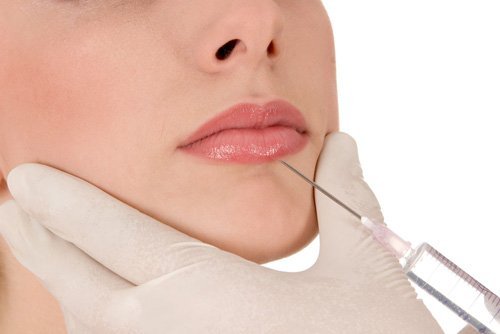當前位置: Language Tips> 雙語新聞
'Needle risk' over beauty treatments
分享到

|
The National Institute for Health and Care Excellence says growing numbers of people are injecting tanning agents, dermal fillers and Botox at home and in salons, and some are lax about hygiene. Sharing needles can spread blood-borne diseases like HIV and hepatitis C. Nice is updating its advice for England and Wales accordingly. The guidelines, which are out for public consultation, aim to encourage people to use sterile needle and syringe programmes to stem the spread of infections. Sharps bins Most blood-borne diseases occur among people who inject drugs like heroin and anabolic steroids. But NICE says people seeking out cosmetic fixes are also at risk. A spokeswoman said: "We are seeing an increasing issue with drugs that are used for vanity purposes." This includes the anti-wrinkle treatment Botox, dermal fillers and tanning agents. Prof Mike Kelly, Director of the NICE Centre for Public Health Excellence, said: "Since we last published our guidance on needle and syringe programmes in 2009, we've seen an increase in the use of performance-and-image-enhancing drugs such as anabolic steroids, Botox, tanning agents and the use of dermal fillers like collagen. "We've also heard anecdotal evidence that more teenagers are injecting these performance-and-image-enhancing drugs too. "We're updating our guidance - and our public consultation on the draft update is an important part of this process - to make sure all of these groups of people are considered in the planning and delivery of needle and syringe programmes." One of the recommendations proposed in the new guidelines is that local councils consider providing sharps boxes for people to dispose of used needles and syringes. Rajiv Grover, consultant plastic surgeon and president of the British Association of Aesthetic Plastic Surgeons (BAAPS), said: "Due to the lack of regulation in the cosmetic sector it is impossible to know how many patients could be at risk of blood borne diseases from needle sharing with either Botox or fillers. "These should be considered medical procedures and BAAPS has campaigned for over a decade to have this field of non-surgical cosmetic treatments tightly regulated. The dangers of sharing needles in cosmetic injectables are so great that any practitioner who does this should be considered guilty of a criminal offence and nothing less." |
據英國廣播公司9月24日報道,英國國家衛生醫療質量標準署(NICE)稱,如今,越來越多的人在家或沙龍注射鞣劑、真皮填充劑和肉毒素,但是很多人忽視了衛生問題,而共用針頭有可能傳染艾滋病和乙肝之類的血源性疾病。 我們都知道,注射海洛因和合成類固醇之類藥物的人容易傳染這些血源性疾病,但是據NICE了解,追求美容、采取修復治療的人也處于此類風險之中。為此,他們正在為英格蘭和威爾士修改指導方針,并向公眾征求對修改草案的意見,其目的是鼓勵人們使用無菌針頭和注射器,阻止傳染病的傳播。 NICE的主任邁克?凱利教授說:“自從2009年我們公布有關針頭和注射器使用指南以來,我們看到越來越多的人利用合成類固醇、肉毒素、鞣劑和膠原蛋白之類真皮填充劑的藥物來提升外觀形象,還聽說許多青少年也在注射這些提升外觀形象的藥物。我們在更新我們的指南,確保其考慮到這些人群以及針頭和注射器的傳送。向公眾征求對該草案的意見是我們更新指南的重要組成部分。” 新指南建議,地方市政委員會向人們提供銳器盒,用來處理用過的針頭和注射器。 英國美容整形外科醫生協會(BAAPS)主席、整形外科醫生拉吉夫?格羅弗說:“由于美容業缺乏監管,我們不可能知道有多少患者因為共用針頭注射肉毒素或填充劑而有患血源性疾病的風險。非手術美容療法應該被視為醫療過程。BAAPS已經為爭取嚴格監管這些非手術美容療法活動十多年了。共用針頭注射美容劑的危險非常大,我們應該認為任何做這件事的從業者都不亞于犯有刑事罪。” 相關閱讀 (譯者 yuanlu 編輯 王琦琛) |
上一篇 : FBI前特工承認向美聯社記者泄密 面臨12年監禁
下一篇 : 美國聾犬助主人擒獲入室竊賊
分享到
電話:8610-84883645
傳真:8610-84883500
Email: languagetips@chinadaily.com.cn